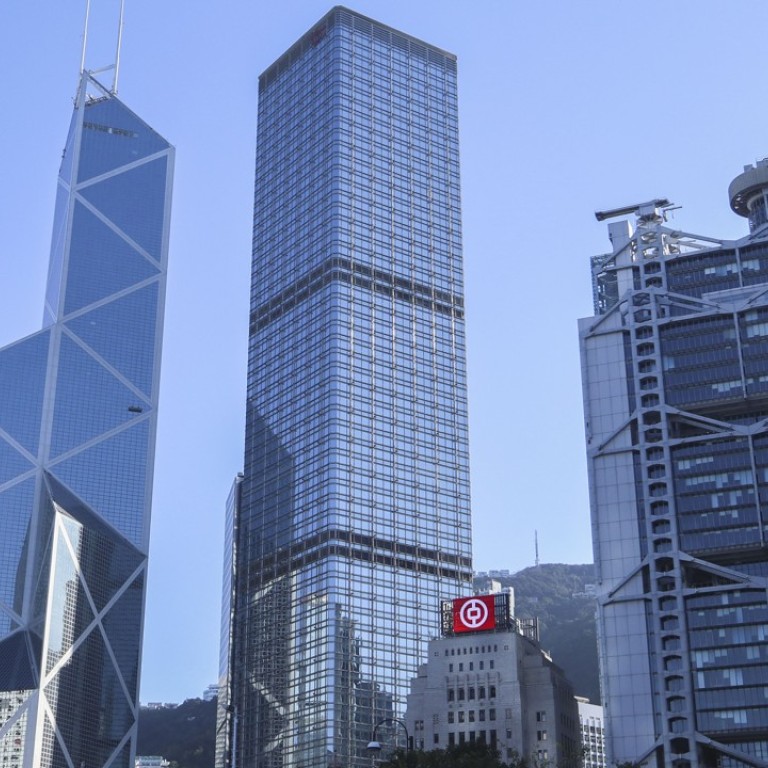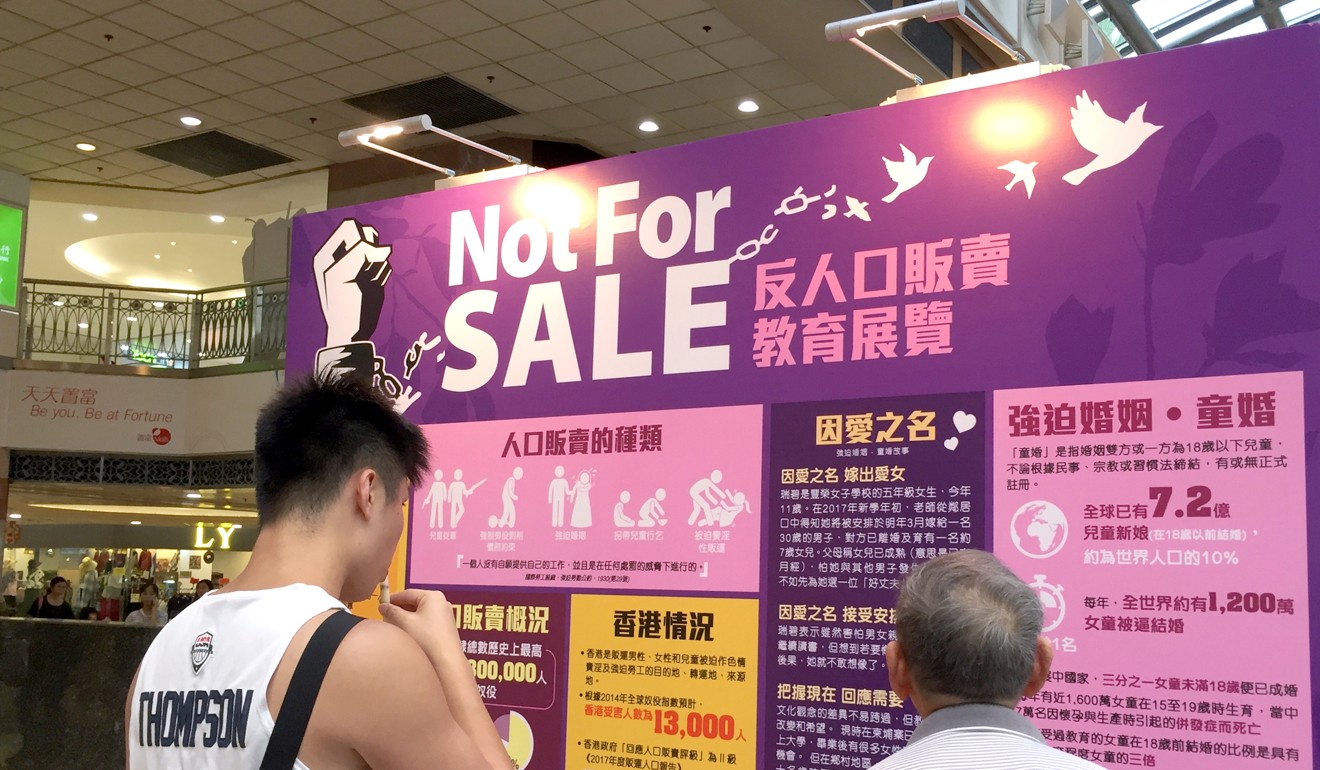
Exclusive | Activists ‘shocked’ after Hong Kong police chiefs block alert to banks on human trafficking-linked transactions
The 24-page document, prepared by Fraud and Money Laundering Intelligence Taskforce, was designed to sharpen ability of financial firms to spot suspicious transactions
Hong Kong’s determination to tackle money laundering linked to human trafficking has been called into question after it emerged that police chiefs blocked an alert – prepared by a specialist law enforcement unit – warning banks in the city to be aware of the problem.
Anti-human trafficking campaigners expressed shock at news of the suppressed alert. That coincided with the publication of a report by the city’s Ombudsman which found a complaint that police were unreasonably withholding data on dirty money transactions linked to human trafficking was “unsubstantiated”.
The 24-page alert – titled “Combating Human Trafficking in Hong Kong and the Asia-Pacific Region” – was prepared by the recently formed Fraud and Money Laundering Intelligence Taskforce (FMLIT) and was designed to sharpen the ability of financial institutions to spot and report suspicious transactions linked to the illicit trade in people.

Sources told the Post the alert was cleared for distribution by both the Security Bureau and the Hong Kong Monetary Authority late last year but blocked by police top brass, who feared it could “lead to Hong Kong being labelled as a hub for human trafficking”.
The task force – a police-led joint effort involving the Monetary Authority and major banks and financial institutions in the city – was set up in May last year. A review is under way to determine whether it should become a permanent feature of Hong Kong’s anti-money-laundering regime.
A global watchdog, of which Hong Kong and China are members and which sets international standards on combating money laundering, has ranked the trafficking of people into commercial exploitation as one of its core concerns.
The Paris-based Financial Action Task Force says human trafficking is a global crime racket which earns profits of around US$150 billion (HK$1.17 trillion) a year – the third-largest source of funds for organised crime after illicit drugs and arms.

According to The Global Slavery Index, on any given day in 2016 an estimated 25 million men, women and children were living in modern slavery in Asia and the Pacific. The region had the second highest prevalence of modern slavery in the world with 6.1 per 1,000 people affected.
Archana Kotecha, head of legal for Liberty Asia and counter-trafficking expert and activist said that, given the high level of human trafficking in the region, and Hong Kong’s position as a major regional financial centre, the city “should take seriously its responsibility to put in place the infrastructure required to track and identify proceeds linked to human trafficking and related forms of exploitation. This will go a long way to disabling networks that allow exploitation to flourish”.
A police spokesman said the draft alert was circulated to Fraud and Money Laundering Intelligence Taskforce (FMLIT) members for comment but was subsequently not promulgated “owing to different views received”.

Worryingly, the decision to hold back on the alert by the Hong Kong Police Force seems to indicate a greater concern with image, rather than combating trafficking in persons.
Simon Henderson of Justice Centre Hong Kong, which campaigns against human trafficking and for changes in the laws to combat the problem, said he was shocked by the revelation.
“The unsent FMLIT alert shows the urgent need for a comprehensive law on prevention, prosecution, and protection to combat human trafficking and forced labour,” Henderson said. “Existing legislation is insufficient.
“Worryingly, the decision to hold back on the alert by the Hong Kong Police Force seems to indicate a greater concern with image, rather than combating trafficking in persons.”
Meanwhile, following a complaint made to the Ombudsman in November 2017 under the code on access to information by the data transparency group Open Data Hong Kong, the watchdog ruled that as “unsubstantiated” allegations that the police refused to release data on the number of suspicious transaction reports it received linked to human trafficking on the grounds that it might “prejudice the prevention of crime”.
However, the Ombudsman’s report, published at the end of a nine-month investigation into the complaint, also found inadequacies with the way the force implemented the code.
“We urge the Hong Kong Police Force to enhance its staff training on the application of the code,” its report also concluded.
A police spokesman said that the force was studying the Ombudsman’s investigation report and would take appropriate action if necessary.
Without referring directly to the blocked FMLIT alert, a spokesman for the Monetary Authority highlighted there was a growing awareness in the banking sector in Hong Kong of the money laundering threats arising from human trafficking.
The HKMA, said the spokesman “encourages development and sharing of information and typologies to help the banking sector to detect typical trends and patterns of suspicious transactions for reporting to law enforcement agencies in deterring and disrupting criminal activities”.
The Security Bureau had not responded to questions by publication time.

